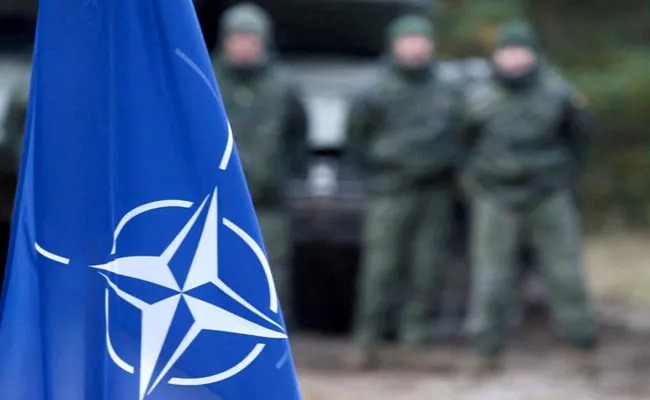| Translate This News In |
|---|
As a result of Moscow’s war on Ukraine, which has doubled the NATO-led alliance’s boundary with Russia, Finland joins NATO as its 31st member on Tuesday.
The Russian incursion of Ukraine completely changed the security environment in Europe last year, forcing Finland and its neighbour Sweden to abandon their decades-long non-alignment.
Finland’s application to join NATO was delayed by awkward allies Turkey and Hungary for separate causes, and Stockholm’s progress is still being impeded.
However, the Turkish senate decided to get past Finland’s final obstacle last week.
This was the alliance’s fastest membership procedure in recent memory, having been completed in well under a year.
All that was left were Tuesday’s meticulously planned formalities at NATO’s offices.
Finland’s foreign minister will present the official accession documents to US Secretary of State Antony Blinken, who is in charge of maintaining the founding constitution of NATO.
The nation’s blue-and-white banner will then be raised in front of the gleaming headquarters in Brussels, alongside the flags of its new allies, between the flags of Estonia and France.
This truly is a momentous day. It’s a wonderful day for the alliance, said NATO Secretary General Jens Stoltenberg.
When Finland joins NATO, it is subject to Article 5, the collective defence oath that states that an attack on one member “shall be considered an attack against them all.”
After seeing large portions of Ukraine destroyed by Russian President Vladimir Putin’s devastating attack, Finnish leaders determined they needed this assurance.
Putin increases NATO commitments
‘President Putin went to war against Ukraine with a clear goal to get less NATO,’ said Stoltenberg. “He’s getting the exact opposite,”
Finland, which shares a 1,300-kilometer (800-mile) frontier with Russia and was invaded by its massive neighbour the Soviet Union in 1939, refused to join NATO during the Cold War.
With a wartime strength of 280,000 and one of Europe’s biggest artillery arsenals, its membership now adds a powerful military to the alliance.
Additionally, the strategic position of the country strengthens NATO’s defences along a border that runs from the weak Baltic States to the escalating Arctic competition.
Immediately following the Allies’ victory over Nazi Germany, the Cold War era started, and NATO was established as a counterweight to the Soviet Union.
The bloc has experienced waves of growth that have pushed it closer and closer to Russia’s boundaries.
NATO’s expansion into nations that were formerly effectively under Moscow’s rule in eastern and southern Europe incensed Moscow and strained ties with Washington.
One of the primary reasons Putin started the war 13 months ago was the possibility of NATO encroaching on Ukraine.
The alliance’s boundary advancing to touch a fresh section of Russia’s northwest frontier initially seemed to be minimised by the Kremlin.
Nevertheless, in recent weeks, it has vowed to strengthen its military and increased its political rhetoric, labelling Finland and Sweden as a “legitimate target” if they enlist in NATO.
Putin has also made preparations to place tactical nuclear weapons in Belarus, a neighbour of Russia.
Swede soon?
Despite this, the coalition still finds Finland’s entry to be bittersweet because Sweden’s simultaneous accession had been hoped for.
Even though Budapest and Ankara reluctantly agreed to approve Helsinki’s proposal, they are still the two holdouts.
Sweden’s concern over Hungary’s rule of law has angered Viktor Orban, the leader of Hungary and one of Putin’s closest friends in Europe.
Furthermore, it has enraged Turkey by refusing to extradite a number of suspects whom President Recep Tayyip Erdogan links to a failed coup attempt in 2016 and a protracted Kurdish independence fight.
If Erdogan survives the upcoming elections in May and Sweden joins before the July NATO summit in Vilnius, diplomats from the alliance expect that Erdogan will become more receptive.


















